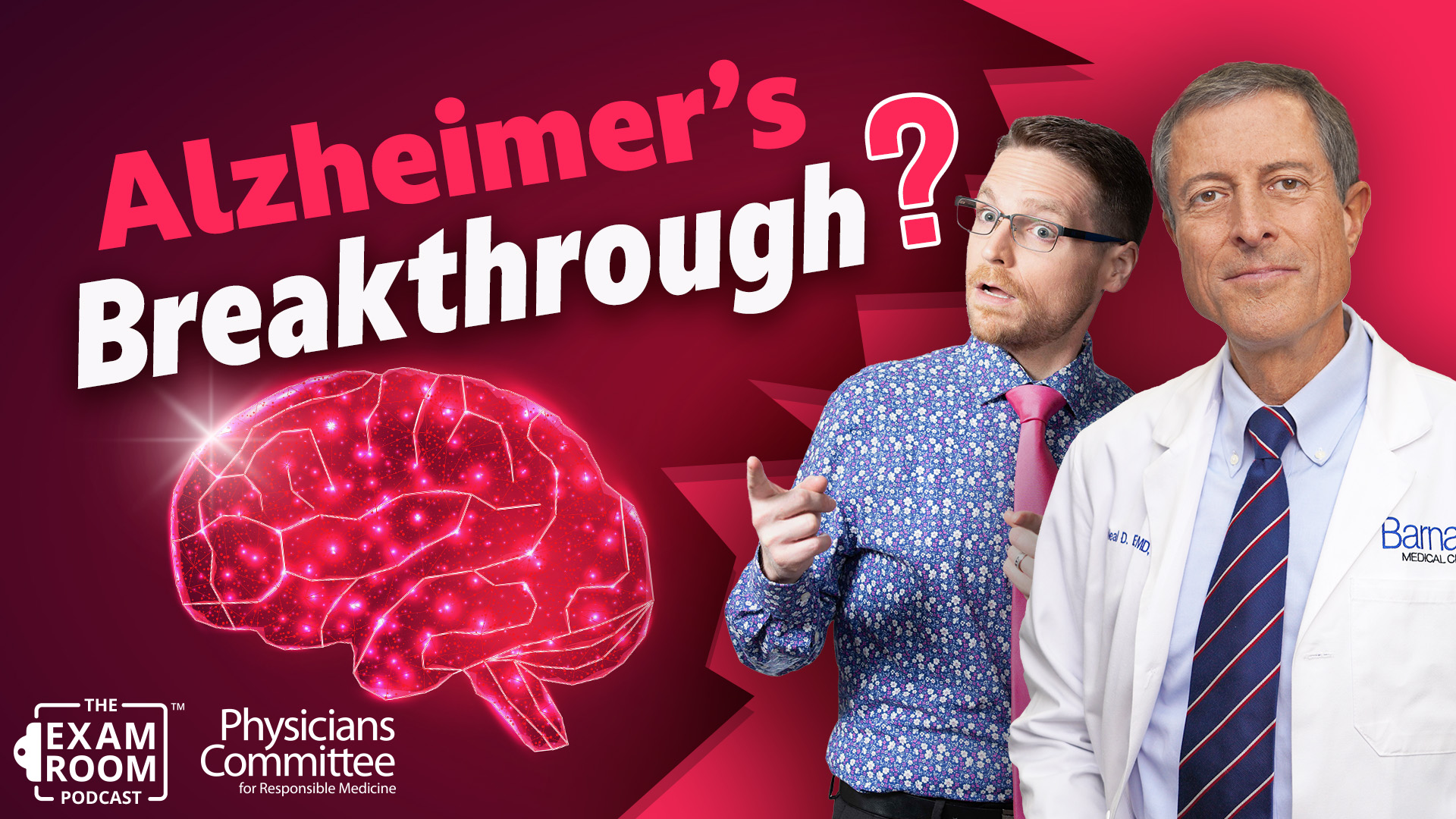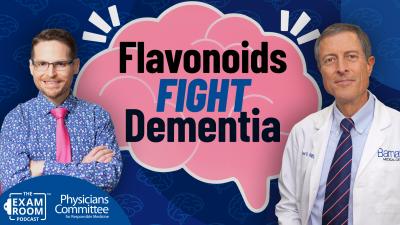New Alzheimer’s Disease Research: Brain Microbiome Breakthrough? | Dr. Neal Barnard

Dr. Neal Barnard discusses recent findings and a potential breakthrough related to Alzheimer's disease.
This episode of The Exam Room™ Podcast is sponsored by The Gregory J. Reiter Memorial Fund, which supports organizations like the Physicians Committee that carry on Greg’s passion and love for animals through rescue efforts, veganism, and wildlife conservation.
He joins Chuck Carroll on The Exam Room Podcast to highlight both the challenges and promising developments in research. The discussion comes as new cases of dementia are expected to double by 2060.
Dr. Barnard is the author of The Power Foods Diet.
Topics discussed:
Microbiome and Antivirals: New evidence suggests that the brain's microbiome may play a role in Alzheimer's. Antiviral medications, similar to those used for cold sores, could reduce the risk of developing Alzheimer's by over 90%.
Vaccinations: There is a correlation between receiving certain vaccines and a lower risk of Alzheimer's, although vaccines can have risks.
Dietary impact: A Mediterranean diet, which avoids saturated fats, has been linked to a reduced risk of Alzheimer's.
Exercise: Regular brisk walking can help regenerate the hippocampus, which is crucial for memory.
Antioxidants: Antioxidants, particularly vitamin E, may also play a role in reducing Alzheimer's risk.
Omega-3 fatty acids: While omega-3 supplements are popular, there are concerns about their link to prostate cancer, suggesting a focus on natural sources instead.
Berries and anthocyanins: Foods rich in anthocyanins, like berries, are beneficial for brain health.









